TV hosts on the dangers of ‘cancel culture’
Studio 10 co-host Sarah Harris sits down with her television co-host Joe Hildebrand for a frank discussion on how the controversial commentator has navigated a year of outrage, insults and threats.
Stellar
Don't miss out on the headlines from Stellar. Followed categories will be added to My News.
As an outspoken columnist who often finds himself embroiled in the centre of a social-media meltdown, Joe Hildebrand is no stranger to controversy.
Over the past year alone he has inspired countless think pieces, abusive messages and headlines such as “What Joe Hildebrand got wrong about violence against women” in response to comments made on air at Studio 10, the morning show he co-hosts each weekday on Network 10, or in one of his weekly columns for News.com.au, where he is the editor-at-large.
In an exclusive photo shoot and interview with Stellar, Hildebrand sits down with his good friend and Studio 10 co-host, Sarah Harris, for a wide-ranging conversation about what he really thinks about insults, threats – and the danger of “cancel culture”.
Sarah Harris: I’m worried about you.
Joe Hildebrand: Me? I’m great. Ever since the meds kicked in, I’ve been fine [laughs].
SH: I just know Sunday mornings are “publish mornings”.
JH: And then it goes all night, and the next morning and then the morning after that...
SH: So it completely ruins your weekend?
JH: Well, what does?
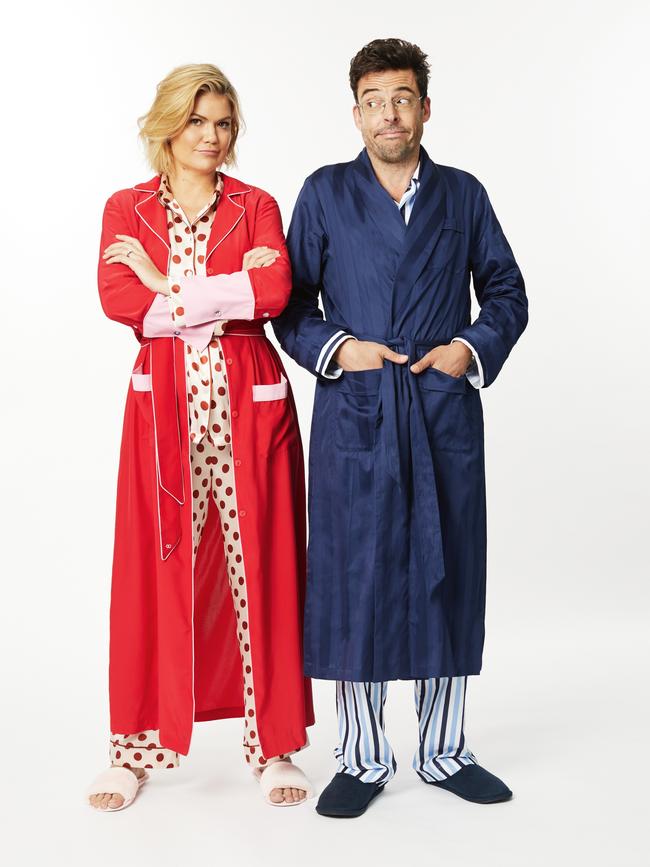
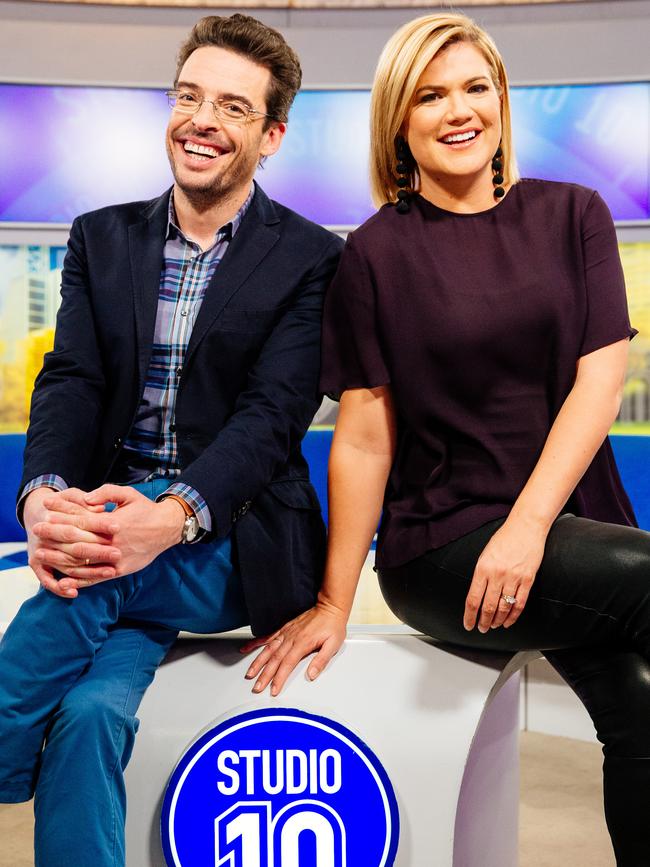
SH: Let’s start from the beginning. You have been named columnist of the year at Mumbrella’s 2019 Publish Awards.
JH: [Laughs.] Yes, by some very learned people.
SH: How do you manage to piss so many people off with your fairly centrist columns?
JH: I think in an age of extremes, being a moderate is a radical position. If you are in the middle, calling for calm on both sides and saying that both sides are going a bit too far and being a bit too silly, then not only are you going to piss off both sides, but you’re pissing off the most extreme ends of both sides.
SH: So you’re just there in the middle trying to call for calm?
JH: That is what most people say, and what most people think. Not to talk about the “Quiet Australians”, but this is what we keep seeing time and time again – that there is actually this huge number of people in the middle who are quite moderate and pragmatic, who are quite sensible in the way they live their lives and the way they want to see our country be led. They don’t shout and scream that much. But it’s the few thousand, if you like, who are on either side and frankly it’s often on the extreme left, which is weird – they’re often the most vile.
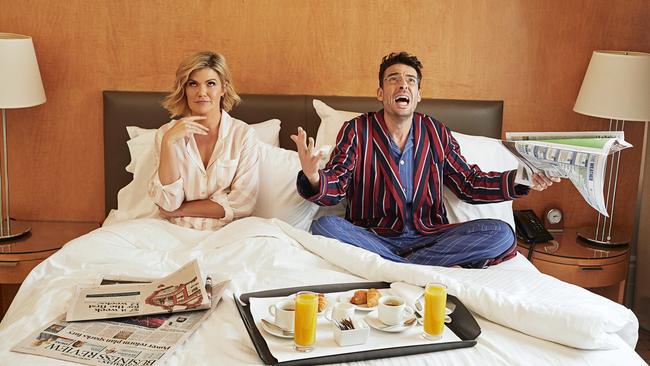
SH: That was my next question to you – where do the most vicious comments come from? Sometimes if I’m feeling bad about social media, I’ll read through your mentions to make myself feel better [laughs]. And I say that with great love because you’re not just my co-host, you’re one of my dearest friends, you are like a brother to me, and some of the stuff you cop is vile. You even had someone bring your missing brother into it, which is such a horrible thing to do. [Hildebrand’s brother Patrick went missing on a family bushwalk more than 30 years ago and has never been found.]
JH: And again, these were people on the hard left. People who would call themselves “progressive”, who would say they were all about “peace, love, tolerance and diversity”. What fascinates me is that you have a bunch of people who say how they are progressive and that these are the people who turn the most frothingly vicious as soon as they encounter anything they don’t agree with. And it’s often worse for someone like me, someone who is centre-left, who used to be much more left until I realised how crazy it was.
SH: What do they say to you?
JH: All sorts of things. They’re vicious. There’s been that, bringing my missing brother [into it] and making jokes about that.
SH: How did that affect you?
JH: Look it’s ugly, but you have to brace yourself. It’s like when you read my things and make yourself feel better...
SH:... I was joking by the way.
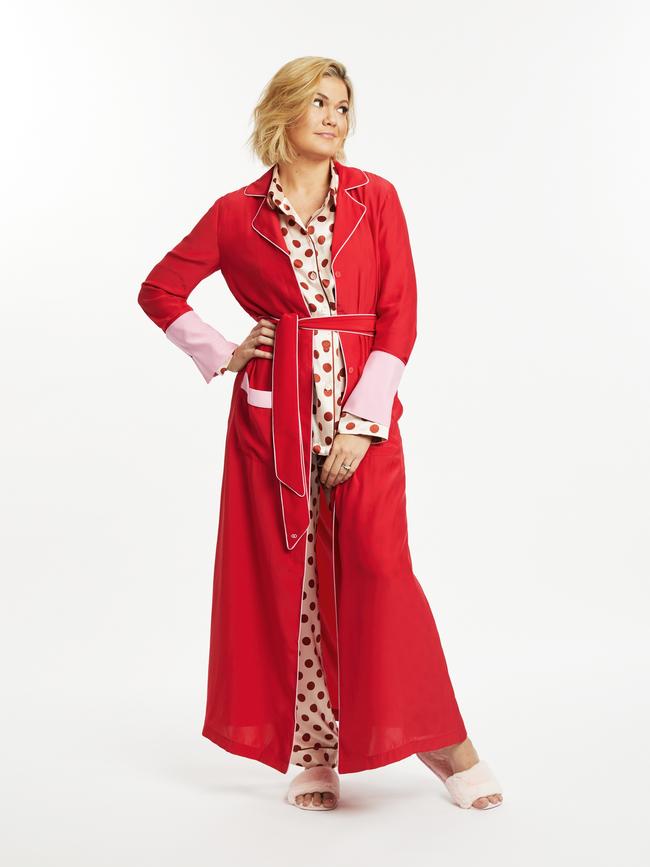
JH: I know, but I know other people who cop it all the time, and you’ve just got to remind yourself that these are just the extremists on one end. And look, you do get it from the right as well. I know there are other people on the left who cop it from the hard right. People probably react most viciously when they know there is an element of truth in what’s being said.
SH: When those kind of toxic insults are hurled at you, do you ever think, “I can’t do this anymore”? You’d have to be pretty brave to keep coming back. It’s sort of like you do 10 rounds in the ring with Mike Tyson, and then you come back for another round the following week.
JH: Often there will be a subject that I know sets people off and I’ll do that one week and then I’ll think, “Next week I’m just going to go for something safe.”
SH: The listicles! Bring back the listicles!
JH: I can’t go back to the listicles... I can’t! I won’t! Well, the safest thing to write is something that nobody reads of course.
SH: So you write brave?
JH: I think you have to. As someone once said, “You have to write without fear of the consequences, otherwise there is no point in writing at all.”
SH: So it never affects the way you’re writing?
JH: No, it definitely affects. I might go from a particular week where something has totally blown up to thinking “you know what...” There was [this one column] where I had all these stats about domestic violence – there was a report that came out that vindicated a position that I had been absolutely crucified for holding about how DV far disproportionately impacts people in disadvantaged communities. A report from the Australian Institute of Criminology came out and collated all the data and actually proved it unequivocally. And again, I got so viciously attacked for it. No-one could attack me on the facts, but people would just accuse me of all sorts of things, and they did then as they have in the past – they accused me of being a wife-basher myself. I had people say they knew where I went to the shops, I had people saying that I should’ve been bashed when I was a child. I’ve had people who bragged about actually seeing me bashed when I was a child. It’s extraordinary.
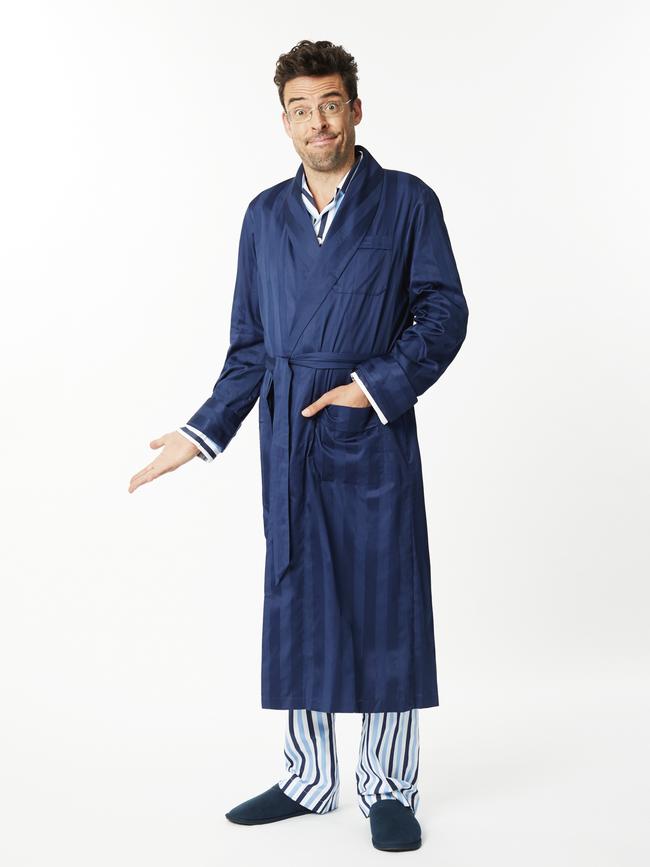
SH: I’ve been sitting next to you on a panel for six years now and we hang out at each other’s houses, we know each other’s kids. It does shock me when people come out with “you’re a misogynist”, “you’re sexist”. After a big controversial piece drops, do you find that you’re getting responses from people both ways?
JH: Definitely. Twitter has a very small minority of people who are active on it. A minority of Australians even have Twitter accounts, there’s a smaller minority there who are actually writing on them instead of just reading, and a smaller minority again who are jumping up and down and doing all sorts of things. The truth is if I didn’t really care about the world being a better place, I would just let it go. Because quite frankly the hard left and the hard right are doing quite a good job at f*cking it up, without me doing much about it and, if anything, the extreme left is probably writing itself the longest suicide note in political history because they’ve become so absurd that they’re basically ceding all this ground to write new populism.
SH: You spend a lot of time on Twitter responding to people who have responded to your column. Why don’t you just drop the bomb and walk away?
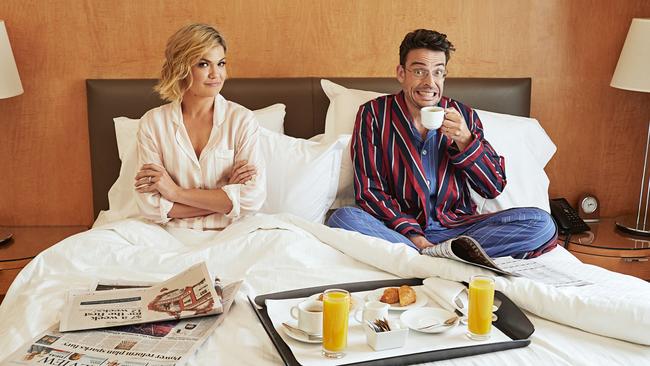
JH: I don’t engage that much, but occasionally if it is someone who is quite high-profile, who is either wilfully or ignorantly misrepresenting me, I do feel that frankly I get slandered and abused by people as it is, without having people who are supposed to know better trying to do the same and muddy the waters.
SH: Columnists are meant to make people think and invoke; do you think you’ve changed anyone’s mind?
JH: I’m not sure if it’s a matter of changing people’s minds so much. Look, Winston Churchill described a fanatic as someone who you can’t change their mind and [they] won’t change the subject. So there is always going to be a certain number of people who are completely blinkered in their thinking and ideology that aren’t quite smart enough to be able to change their mind, or reasonable enough to, and they will always think what they think.
The reason why there seems to be so much blowback from the extremes is that they are by definition extreme, so when you carve out a moderate ground they can’t attack you for being a crazy right winger. It just illustrates how extreme they are.
SH: Given today’s precarious nature, as you are writing columns, do you ever think “I am one column away from being cancelled”?
MORE STELLAR:
I’m ready to settle down. But my partner isn’t
Scary fact you might not know about today
JH: Oh, without a doubt. And not only do you have this horrendous idea of cancel culture, [but] this is the scariest thing: the biggest threat facing us is that you have a small group of extremists that actually draw up the rules of what is and isn’t acceptable language, and who will effectively outlaw any speech that they disagree with. And they’ll say that this is not a political act. They’ll say this isn’t politics or ideology.
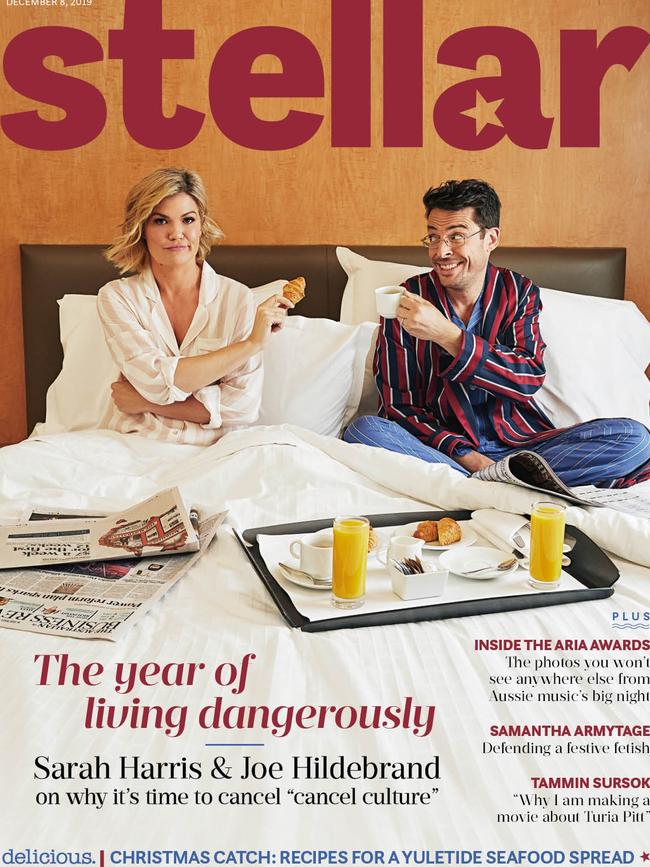
SH: But people can disagree with you, right?
JH: Of course people can disagree with me, absolutely – people should be able to disagree with me all the time. The question is if people should be able to have those disagreements without being threatened with the sack or prosecution in some cases under civil law or anti-discrimination law, without being subject to boycotts or online campaigns, which in themselves become a law. I think there’s a huge number of people in the middle who are leading happy, sensible lives and want to hear happy, sensible thoughts and have happy, sensible debates. I think that is hopefully where we’ll get to, and the anger and toxicity will eventually be purged from society and debate like toxins after a cabbage soup diet.
SH: So, last question – what’s next week’s column?
JH: I’ll be writing about how anyone who doesn’t agree with me is a fascist alt-right Neo-Nazi.
SH: Get the pitchforks ready...
